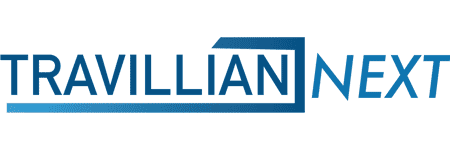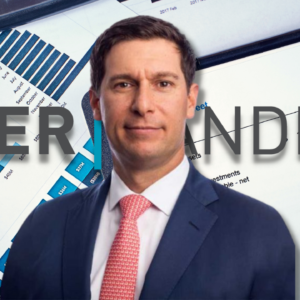Brian Love, Head of Banking and Fintech at Travillian, and financial institution legal advisor Stan Orszula, Partner at Barack Ferrazzano, had a colorful conversation about several hot topics within the community bank space, including:
- Game-changing banks and bankers that are exciting to watch.
- Successful adoption of technology strategies.
- Better hiring practices and ideas for niche technology-centric roles.
- Emerging products and focuses, like payments and niche marketing.
Brian Love: What’s your take on what is going on with the regulatory agencies? What should we think about and how do you think it plays out in the future?
Stan Orszula: A lot of change has occurred at the agencies with the recent administration change. New leadership at both the board level (i.e., the FDIC) and at the White House seems very consumer focused. You even had a nominee – Saule Omarova – to head the OCC who suggested systemic transformative changes to banking. Even though she withdrew her nomination, the new administration is very different from the prior one and very focused on progressive, consumer issues in the bank regulatory arena. Now, you have a turf war at the FDIC between Chair McWilliams and recent administration-appointed board members. If you look at the CFPB, even if you just read the tone of their announcements, their approach to regulation sticks out. One area we’ve seen increased scrutiny is in fintech – bank relationships, especially in the banking-as-a-service arena. The takeaway is that banks need to know what their fintech partners are doing. And I also think too with the regulators, sometimes they’re a little bit behind on some trends and again, not to pick on the CFPB, but they’re going after specific areas that make headlines, are newsworthy and that go beyond the mission.
Brian Love: What’s your kind of crystal ball for 2022?
Stan Orszula: I wish I had a crystal ball. I do still think we’re sort of in the “PPP and federal assistance loan high”, in a weird way. Interest rates remain low, inflation is up. I expected that the pandemic would cause a lot more loan defaults. For example, hospitality and related industries were hit hard but we did not see a wave of NPLs that would severely hurt bank liquidity. I think interest rates are still going to remain low. I think there’s going to be certain areas with pent-up demand. So I think in those areas, you’re probably going to see a bulging activity… I also think what the pandemic has done for banks is really make them look at what they’re doing digitally, because people are using branches less and banking less in person. Although the bigger banks are obviously developing digital solutions in house because they have the resources to do it, our community and regional banks are looking at various digital solutions on how to serve their customers best. And for example, I’ll give a shout out to certain banks that I think have done that. Hills Bank and Trust out of Hills, Iowa, developed a digital platform because they are the official bank of the University of Iowa. So their idea is that, hey, you come to the University of Iowa, and then you go out to the world, you can still be a customer of Hills because of the digital infrastructure that they built. They made mobile banking easy. Once a customer, always a customer. So, I think you’re going to see more of that. We’ve also been helping banks like Lincoln Savings Bank and Choice continue to grow their banking-as-a-service offerings. Both banks are great examples of solid, midwestern banks that embraced technology and ran with it. This has been a huge growth area in our firm’s financial institutions and fintech practice areas.
I think the ones that do BaaS really well will survive and prosper. But even if you’re not doing BaaS, you need a good digital platform that’s secure and easy to use and makes banking easy. There was a quote from a recent survey that stated, “more people would prefer going to the dentist than going to the bank” and the extent that you can change that perception by making it easy, safe, and secure, where you have confidence, I think your bank is going to be well positioned for that in the future.
Brian Love: Hills Bank and Trust may not be on a lot of people’s radar. Did they lean on their core tech vendor or did they go for a partner like a Narmi or MANTL?
Stan Orszula: They did it in house. They have a guy there, Ken Hinrichs, their Head of Digital, and he basically built it up from scratch.
Brian Love: APIs and everything?
Stan Orszula: Yes, and they leveraged that, and now they’re into BaaS because they already built the platform.
Brian Love: He sounds like a bright guy… the type of talent that every bank wishes they had, who did a lot with possibly limited resources. On that front, let’s talk about talent. Any lessons learned from the past year or two?
Stan Orszula: Employees are still not all onsite, many are still remote. How does that affect hiring? How does that affect staffing? How does that affect culture? I think it’s accelerated things 10 to 20 years, in a good way as it’s helped banks catch up to the talent race because they might have to offer flexibility now which is more of an appeal to candidates. For example, you can go work for a bank and you’re in a situation where maybe you fly up, 3 or 4 days a month and work remotely, and have a hybrid type schedule. So, then you’re indifferent geographically. And especially for a bank creating a BaaS division or more of a digital platform, it allows you to widen your talent net nationwide.
Brian Love: Yes, great point. Look at Lincoln Savings Bank, located in Waterloo, Iowa, a somewhat remote geography. We assisted them in hiring 2 terrific candidates, one from Oregon to be their Fintech President and one to be their Chief Risk Officer, who is now living in New York City. The foresight that [Lincoln Savings Bank’s CEO] Eric Skovgard and his team had is really inspirational, in that they wanted to see the best candidates regardless of geography. Curious: Is there a product or service that might not be in everyone’s periphery that you think might sneak up and be the service or the product for 2022, 2023?
Stan Orszula: Two things – payments and niche marketing.
In payments, The other thing that is accelerated on the digital offering side is banks adopting and offering some of the products that fintechs are using, like early pay. Payments are being revolutionized, where there’s a lot of developments where we’re going to have a lot more instant payments rather than waiting a day or two for a wire to clear.Niche marketing to different groups with customized product offerings may explode in 2022 and 2023. Also, I think niche marketing, because I think we’re going to be at a point at a bank digitally, you can offer cradle to the grave, like the whole alphabet of services, from going into more of the investing, wealth management, to be able to serve your customers from the beginning to the end. And you can do it by picking different providers for that.Whether it’s an app or a private label solution, I think you’re going to see a lot more niche and focus. Like for example, there’s an app out there called Purple that’s meant for the developmentally disabled community where I understand that it allows people in that community to manage their money while not running afoul of restrictions on government aid and program eligibility.So that’s a neat product. That’s a fintech right now. So if a bank adopts that, or for example, I think it’s going to be more affinity type products, products tailored to certain groups with certain needs. Whether it’s a hobby or an affinity or something that’s cultural or mission driven.
Brian Love: The de novo replenishment rate has been low… I think the way de novos will stand out is to service a very specific business sector, demographic, or community.
Stan Orszula: First Women’s Bank here in Chicago is a de novo bank that our firm was very fortunate and privileged to help get their charter and their focus is to serve a community that perhaps has not been served so wholeheartedly by other institutions. And we’re also helping another de novo that’s going to focus on a minority and diverse community as well. We’ve also been approached by other groups and we believe that there is some real opportunity out there for these niche bank initiatives.
Brian Love: In a prior conversation, you and I were discussing fintechs and BaaS banks and some of the best practices on hiring. Tell me a little bit more about those trends on best practices on hiring the geographical, where the talent is and compensation to.
Stan Orszula: As we found, working with some fintechs, some of them have great ideas, but they don’t have a lot of banking and bank regulatory IQ. I think they need talent from a bank; they don’t have to be experts because you’re not going to get somebody with 40 years of banking experience that will be able to marry that with the digital experience. But I think the idea is to find someone with a regulatory standard or background, even if it’s just for a little bit. I think that helps too. Or somebody that maybe worked at a fintech. Maybe they never worked at a bank, but as with many fintech startups, they were probably thrown into the fire on the compliance part. And you as a bank can use their battle experience to your advantage. And it just goes back to fintechs, open banking, neo banks: they can’t do it without partnering with a bank. I think they have great ideas and great technology, but they’re not all staffed with people that have a lot of regulatory bank experience. That is something that is hard to come by and it’s a well-honed and well acquired skill that not just is technical knowledge, but also requires judgment as well.
Brian Love: I do think you’re going to see more banks wanting to jump into BaaS over the next few years, and the due diligence done on candidate hires will be increasingly important. Not to pat myself on the back, but that’s kind of what we do. We scrutinize backgrounds and we make sure that they have proper experience and the keen understanding of running a business, but also subject matter expertise.
Stan Orszula: As a bank, you may get a resume for somebody that on paper uses the right buzzwords and the right terms and everything. But it’s the ability I think, to have something in there to trust, but verify, that experience, that knowledge, that judgment. And I think that that’s going to be a big challenge because fintech is a relatively a new thing in the sense that you’ve really seen the collaboration and the merging of banks and financial technology. And to go back to my earlier point, the fintechs, they can’t do it without a bank. Whether they ended up buying one, merging with one, or partnering or joint venturing. That’s what we’re doing a lot of.
Travillian’s Banking and FinTech Practice provides Search and Talent Advisory services to depository institutions across the country. Established in 1998, the firm has built a unique platform that touches every corner of the industry. To learn more, click here, or get in touch below!
|
Brian Love, Head of Banking & Fintech |






